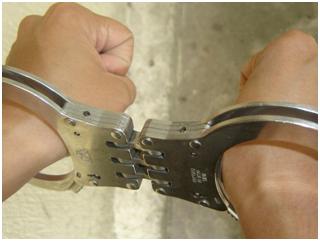 After his speech before the National Assembly, in which Raul Castro warned that “there will be no impunity for the enemies of the homeland,” the repressive and intimidating actions against opponents have intensified.
After his speech before the National Assembly, in which Raul Castro warned that “there will be no impunity for the enemies of the homeland,” the repressive and intimidating actions against opponents have intensified.
Troops from the National Revolutionary Police (PNR) and State Security (SE) agents selectively arrested several dissidents near the Malecón on the 5th of August.
The majority of the detainees were trying to enter the United States Interest Section in Havana, the only place on the Island offering Internet access to Cubans. That day was another anniversary of the “Maleconazo” – a popular uprising preceding the exodus of 1994.
Arbitrary detentions, official subpoenas and warnings are the measures most commonly employed by the political police to suppress the dissenters. On the 9th of August military counterintelligence (MCI) and State Security officers summoned for questioning the independent journalist Iván García.
The authorities fail to comply with the requirements for summons set forth in the Criminal Procedure Code. In most of the cases they act on their own, disregarding the law.
The agents claim that García has defamed military institutions in one of his articles published in the Spanish newspaper “El Mundo.” This Penal Code classifies this act as a crime against the public order and stipulates sanctions. However, the officers choose to warn the correspondent officially.
The reporter thinks that the officers who questioned him were applying the words of the President of the Council of State and the Council of Ministers.
The issue of several official warnings (at least 3) constitutes a precedent enough to justify a trial on the grounds of what is called “pre-criminal dangerousness” (peligrosidad predelectiva) because of antisocial conduct. This is one of the most commonly used criminal law concepts applied to the opponents of the regime. The sanctions can be as high as 4 years in prison.
The government made its point clear, that the recent releases of prisoners would not suggest an end to the use of the repressive methods. The First Secretary of the Cuban Communist Party explained that to defend the streets and squares would continue to be a revolutionaries’ duty.
The message is clear for those who hope for an improvement of the human rights situation on the Island. The prisons can be filled with political prisoners again at any moment and on any grounds.
Laritza Diversent
Translated by: undef
August 27, 2010
